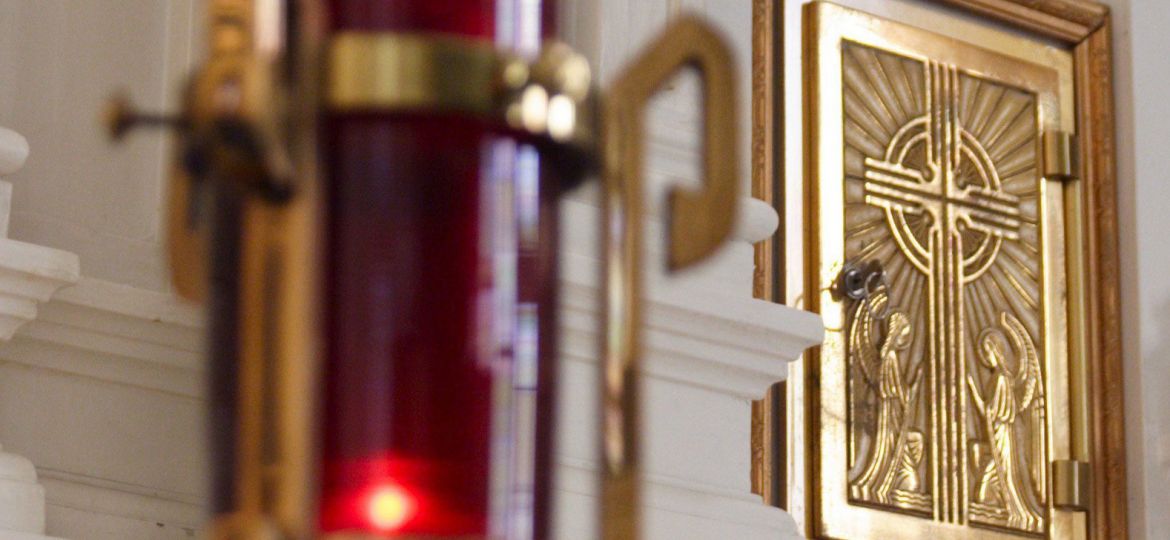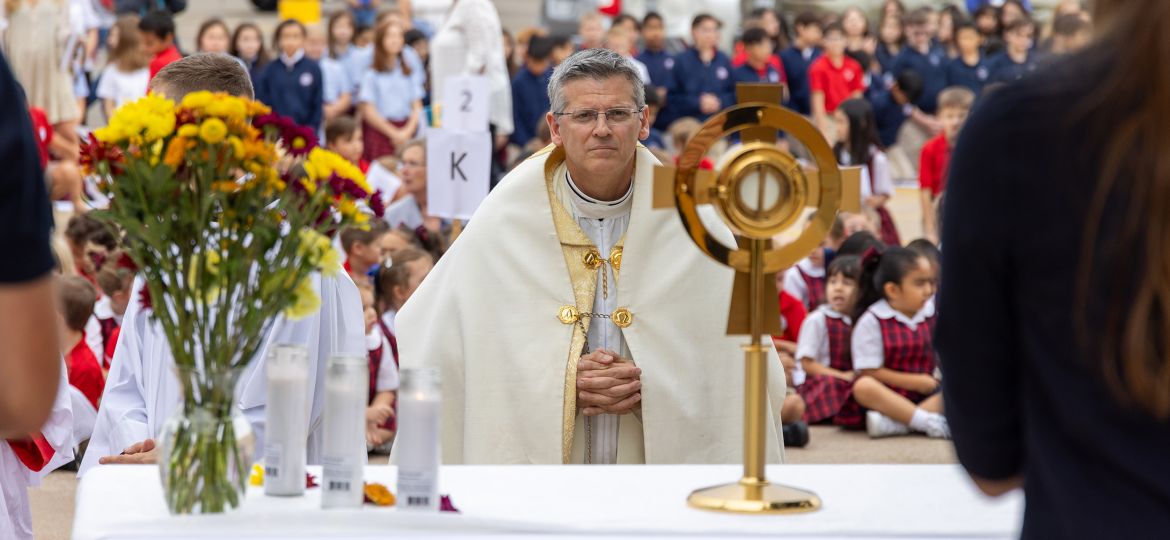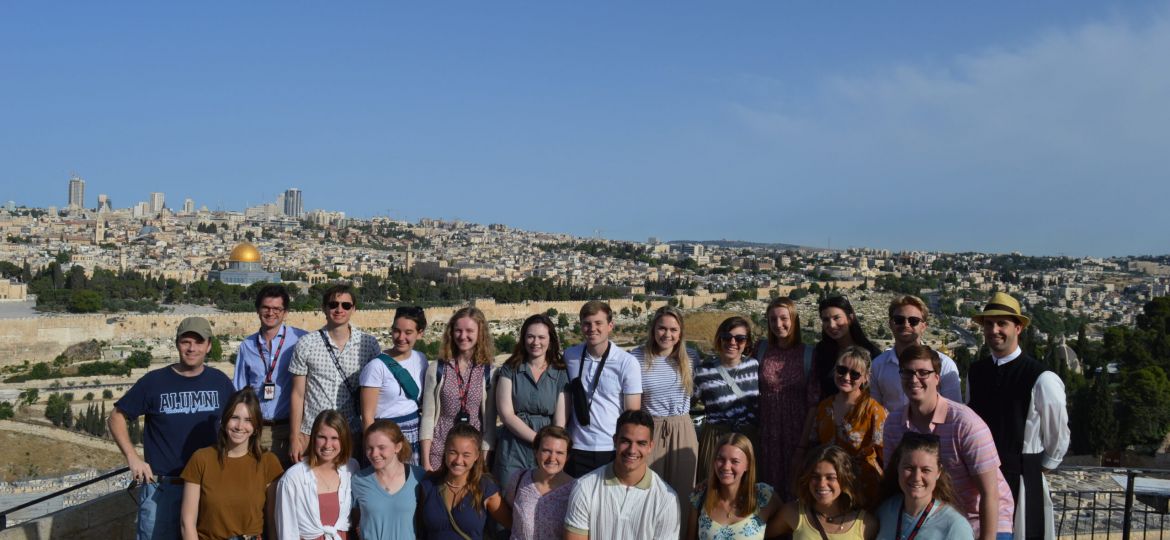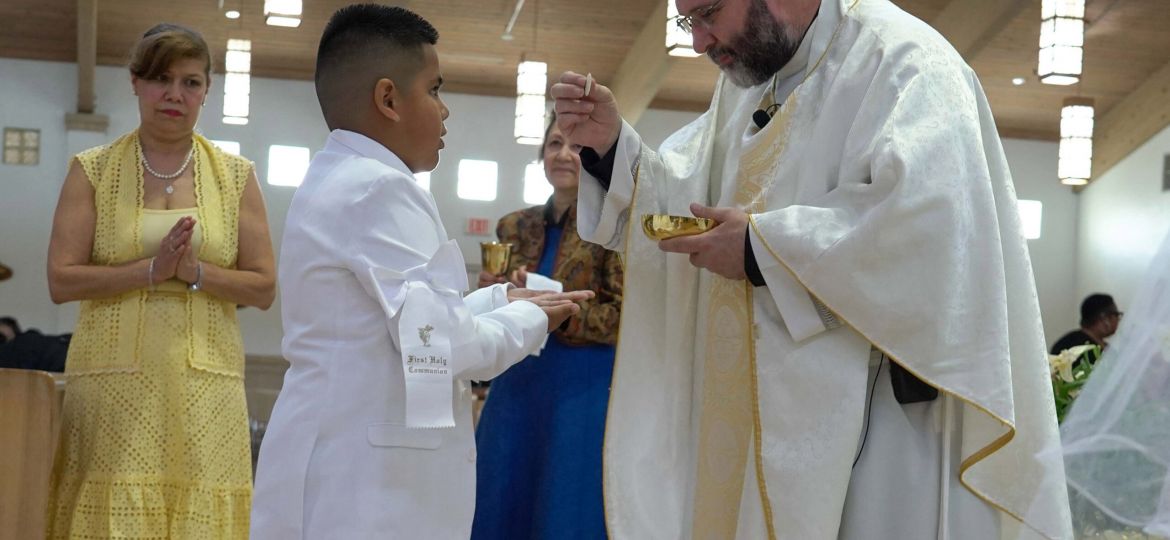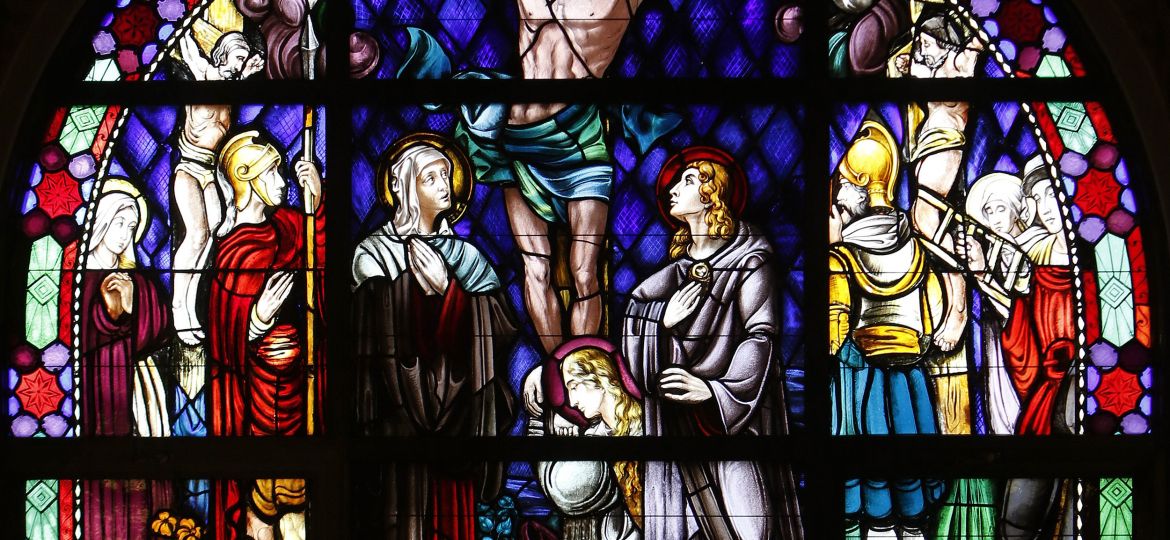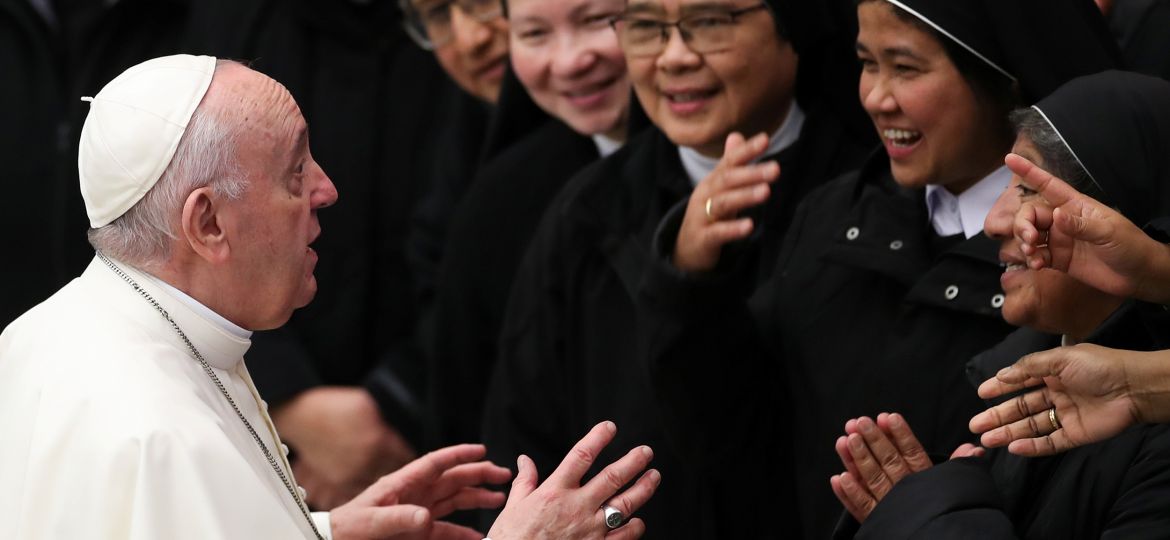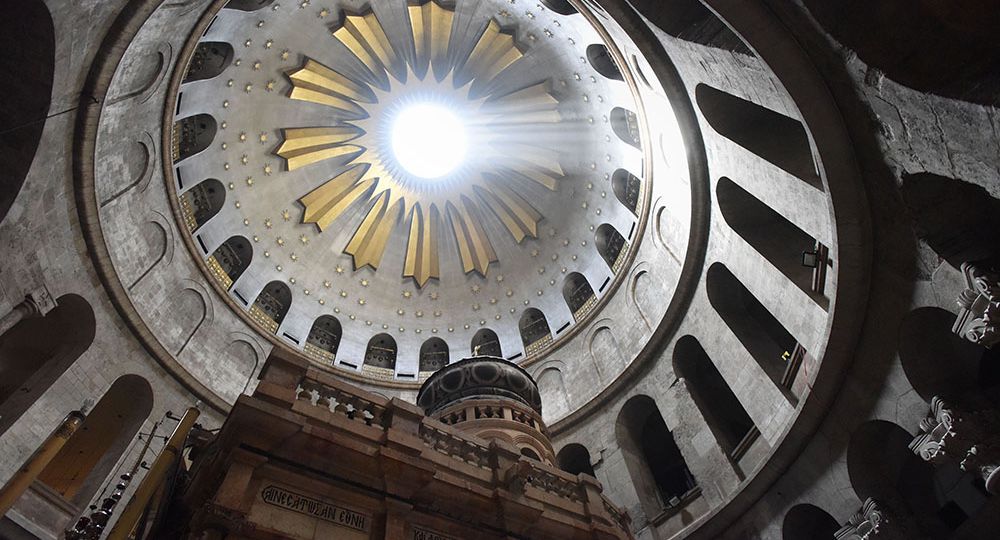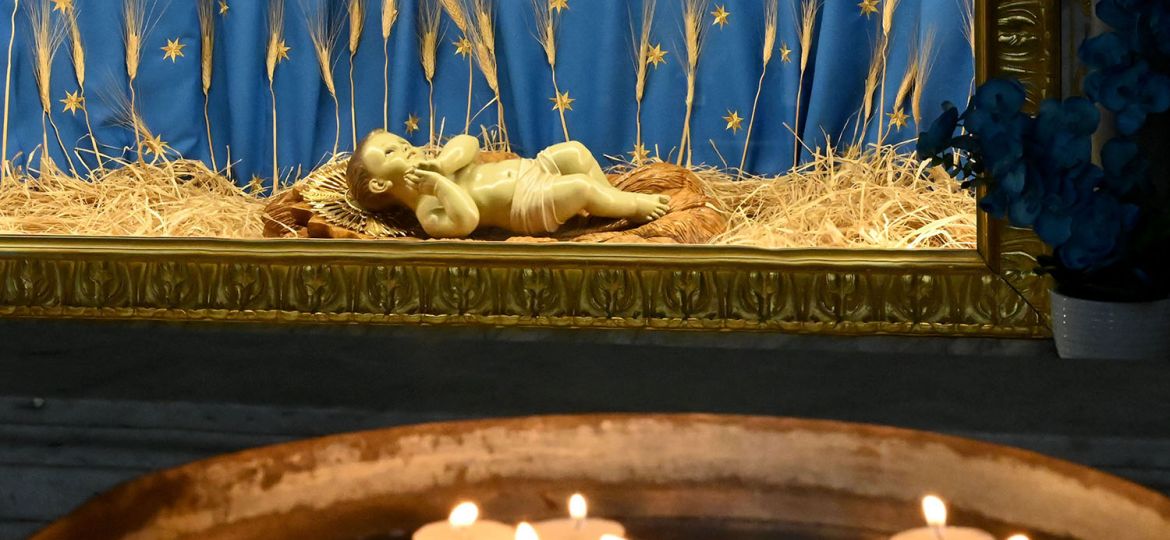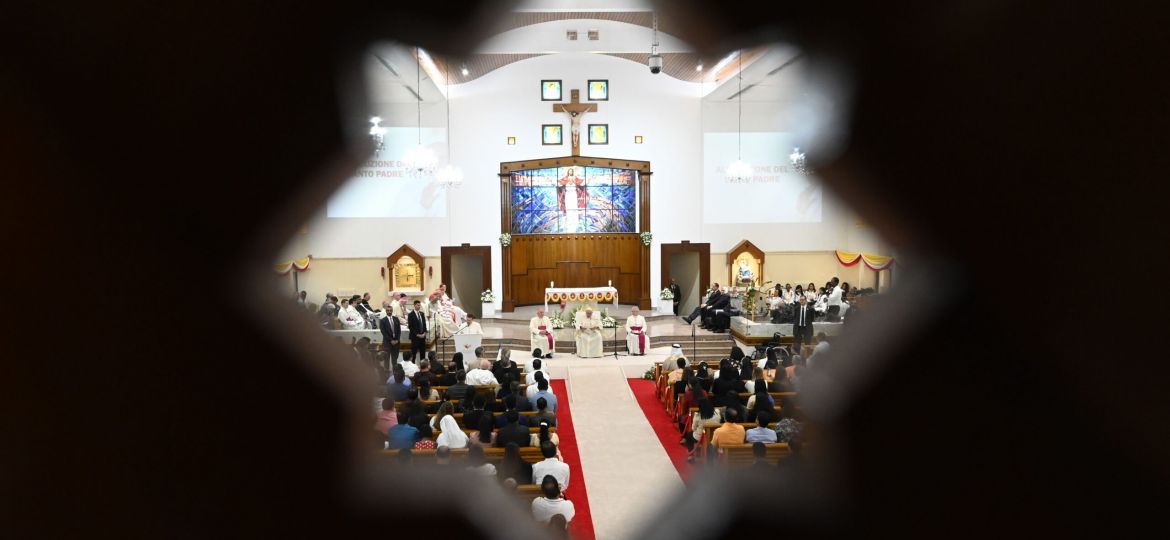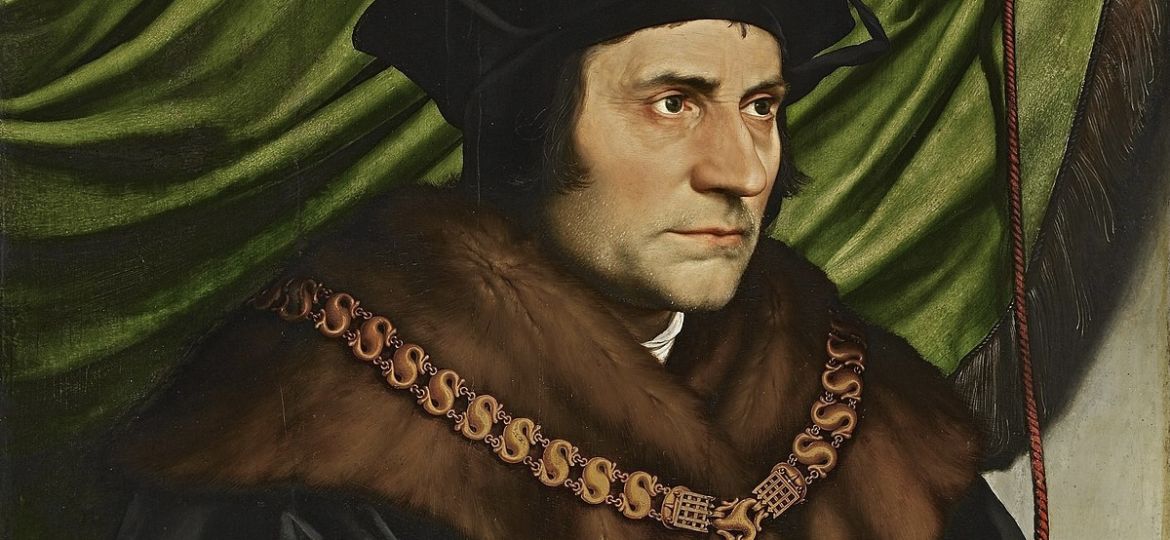Profane and profanity are English words commonly used in reference to swearing, cursing, and hurling abusive language at someone. That’s an intriguing development from their Latin roots! A fanum is a temple or a sanctuary; attach the preposition pro to it, and you get “before/in front of/ outside the temple.”
The current Eucharistic Revival in the United States is generating a discussion of the role of Eucharistic Adoration in the life of the Church. While the practice is encouraged by many, some people have noted that devotions such as exposition of the Blessed Sacrament and Eucharistic processions were invented and popularized in the medieval period, and thus were not part of the early Church’s liturgical worship.
I recently accompanied a group of University of Dallas students and young alumni to the Holy Land, and I would like to share some musings about Christian faith and pilgrim feet based on that blessed experience.
Spring, according to custom, is a most suitable season for weddings; the abundance of freshly bursting flowers signals that creation rejoices in the beginning of a new life together. The Easter season, overlapping with spring, often features priestly ordinations; the abundance of Alleluia joy reverberates through cathedrals as men are uniquely consecrated for the Lord’s service. Every ordination conveys a jolt of hope to a diocese or religious order. The sight of new priests around their bishop signifies that the Lord continues to channel grace through chosen mediators who link believers today back to the Apostles.
Over two millennia of Church history, several standards of orthodoxy have served as the pillars on which a correct understanding of the Christian mysteries must be built. One of them is what I would call the incarnational principle: a proper acknowledgement of the goodness of the material world and the human body.
“Why should I be happy?” I wasn’t expecting such a snappy retort to my friendly question “Are you happy?”, even though the respondent was my scowling confrere Father Roch Kereszty. Never satisfied with facile and clichéd conversations, Father Roch always resisted the shallow and automatic answers we give to questions that are usually superficial, but can often contain profound depths.
We typically associate the word “invention” with modern scientific breakthroughs, brilliant and painstaking achievements by geniuses producing civilizational advancements and mastery over the forces of nature. Human ingenuity has produced astonishing developments, from the printing press to the combustion engine to the Internet, with new inventions, some of them promising to alter the very fabric of humanity, on the horizon.
Whenever people ask me how they can prepare themselves spiritually for Christmas, I invite them to read the lyrics of Christmas carols as prayers. Specifying which carols to employ is important; I am not aware of any mystical symbolism behind “Frosty the Snowman,” and I have long been convinced that “All I Want for Christmas is You” is fundamentally unredeemable on the first listen, let alone the ninetieth on the Christmas radio station’s saccharine and secular playlist. But many of the traditional Christian carols were first sung in a liturgical setting, and therefore were designed to be vocal prayers. That is certainly the case with “O Come O Come Emmanuel.”
A popular praise-&-worship song takes its title from the opening words of Psalm 89: “I could sing of your love forever.” The song stirs emotions to a blissful pitch of gushing adoration for the loving and healing God who allows us to lift our hands daily in tranquil praise of His never-failing mercy.
While awaiting a sham trial and certain execution for high treason, Thomas More prayed and wrote. Henry VIII had declared himself head of the Church of England, and the Catholic More, who had served the king loyally as chancellor, refused to break his spiritual allegiance to the pope. He was utterly alone at this hour of his life; his beloved wife and children implored him to overcome his scruple of conscience and sign the Oath of Supremacy. More clearly regarded his own suffering as an imitation of his Lord; his most beautiful prison writing is “The Sadness of Christ,” a meditation on the garden agony of Jesus, the innocent suffering servant.

